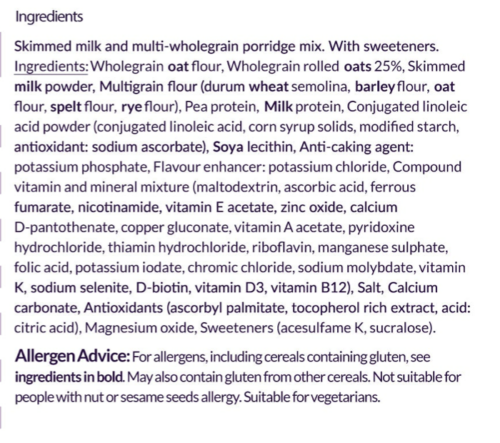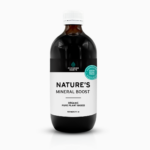Are “Low-Calorie” and “Restricted” Diets Killers?
The day after Shane Warne died the headlines around the country screamed across the newspapers, television and radio that he had been on a 3-week liquid cleanse that could have contributed to the tragedy of his death. One study was consistently sighted as to how this may have caused the fatal heart issues.
The world was left hanging not knowing what really caused the sudden death of a famous cricketer.
No matter what the cause of death of Shane Warne there is now lingering doubts about liquid diets, fasting, low-calorie diets and juice fasts.
For the past 10 years I make it a point every year to reduce my calories significantly for a period to give my body the chance to get rid of excess fat and any toxins that I may have collected in those fat cells. The cleanse I do is based on real foods, no meal replacements, no crazy supplement regime, just food in limited amounts adjacent with cutting out some food groups. It’s my master reset, and I feel amazing both physically and mentally every time I do it. I also share this program with thousands of followers of Changing Habits and The Nutrition Academy. Recently I had an email from a concerned follower citing the same research the media had done in the case of Shane Warne.
It was time to have a really good look at the study that was cited as to the reason a low calorie, intermittent fasting diet could cause the heart attack of a 52-year-old male.
But before I go through the study let’s look at some principles that need to be addressed before jumping to a conclusion that low calorie or fasting or a liquid diet can cause heart issues.
If we go back to the principles of anthropology, we notice that there were many times in our history where food would not be plentiful. There was feast and there was famine on any year or season. The human body can survive feast and famine, it has the biochemistry to do this, it is a survival mechanism for humanity. The longest fast ever recorded was 13 months – you can read about it in my article here. Depositing fat during times of feast is to survive the times of fewer food; it was cyclical and the body was a master at survival.
While many people do not appreciate this wonderful mechanism of the body, the fat we lay down when calories are in excess is the fat we use when calories are deficient. The fat we lay down with organic, real foods is also very different to the fat we lay down with ultra-processed foods and refined vegetable oils. Therefore, there is pro-inflammatory fat and anti-inflammatory fat. Not only do you store fat in your fat cells but fat-soluble vitamins, over 20 types of hormone and the many other things that will help in survival. Fat cells also make leptin, the master human hormone. Leptin is like the gauge in the petrol tank – it tells the brain if we are full or not. I talk about Leptin Resistance as a major issue in obesity and food control in my Fat Loss Protocol.
Nowadays food is available 24/7 in any form you want it; organic, healthy, or ultra-processed. Throughout our life, we make choices that will either increase our longevity or reduce it. Choices such as smoking daily, drinking too much alcohol, eating ultra-processed foods, late nights, lack of sunshine and little exercise all have a detrimental effect on health and longevity.
Now for the study. It was conducted in 2018 and published in 2019, you can read it here.
Let me summarise it for you.
The objective of the study was to not only prove the benefits of weight loss to the cardiovascular system but to also see the acute elevation in fatty acids (released by the fat) during caloric restriction and the effect it has on cardiac metabolism and function.
The key to the objective that caught my eye was this:
“We sought to investigate any cardiovascular changes occurring over the course of a modern VLCD regime”
What is a Modern VLCD Regime?
An “Old Fashioned” VLCD Regime I’ll assume means real food, such as what’s in my program.
A “Modern” VLCD regime does not mean real food but rather meal replacements.
I went to the company that supplied the meal replacements for the research to check their ingredients out and there were no surprises. The food was pure ultra-processed junk. Well, at least that is the way I saw it. A few examples:
The Vanilla Shake

Chicken and Mushroom Soup

I can’t find any chicken at all and the mushroom is the third last ingredient listed. Generally speaking, the further down an ingredient is in the list, the less of it contained within the product.
Porridge

Back when I was eating porridge, I made it with oats, there was no flavour enhancers, anticaking agents and soya lecithin.
I think you get the picture.
So who did they study?
21 obese males were enrolled in the study with a BMI of around 37, plus 15 in the control group that did not take the Modern VLCD Regime and were of normal body weight.
Results:
After the first week of the 8-week program, there was only modest weight loss, there was a reduction in liver fat and insulin resistance. That’s a good thing. The myocardial triglyceride content increased and was associated with a small deterioration in both systolic and diastolic function. Aortic stiffness also increased. By the end of the 8th week, all signs of cardiac issues seen at the end of week 1 had resolved. Remembering there were 21 individuals with 21 results, I noted from the study that not all participants had an increase in myocardial triglyceride content, some participants remained the same, while others triglycerides dropped.
When there is a reduction in calories the body must convert from a sugar-burning machine to a fat-burning machine. Depending on the diet and antecedents of one’s life, will be how quickly the individual can convert to using stored fat as its primary source of energy. That’s why in the first-week weight loss may have been modest in the research.
On a low calorie diet the body will use around 220 to 330 grams of stored fat (depending on male or female) in order to survive. Over a 3-week period we expect most people to lose between 4.5kg and 6.9kg of fat, but during programs such as mine, like The Fat Loss Protocol, we find many people in the first week lose their most amount of weight.
Why?
The Fat Loss Protocol is about real foods, our participants start eating real foods that decrease inflammation in the body and thus the body starts to lose water weight. The first time I did The Fat Loss Protocol, I lost 4.5kg in the first week and I lost a lot of pain and aches and foggy brain. All of a sudden, my body was de-flaming and I was getting back my life force. It was not fat that I lost (that would have been impossible) but rather water. I want you to think the opposite as well. You’ve been eating well, your weight is stabalised, you are happy, and you go out on the town and eat bad food and drink too much, the next morning you get on the scales and you’ve gained 1 to 2kg. You decide the diet isn’t working and you are just going to throw in the towel. But it’s not fat you’ve put on, it’s all water because you have inflamed the body. Go back to clean eating and you will urinate it all out.
On a Modern VLCD regime based on food replacements, there would be little to no water loss as the body would be continuously inflamed with the ultra-processed foods on the regime. Measuring only heart and liver parameters like they have in the study feels so short-sighted.
One of the things that we are very strict on with our Fat Loss Protocol or “Old Fashioned” VLCD regime is we do not want you to exercise, yes move at a low intensity by all means but no lifting weights or going to the gym or running marathons. In other words, no stressing the heart. This is not because we are worried about the heart but rather when the hunter-gatherer did not have a lot of food it was not a time to waste energy but rather conserve, heal and rest. Perhaps there was some wisdom in following the cultures of our ancestors. If there is an excess of triglycerides and a dysfunction in the pressure and fluidity of the heart, then there was wisdom in how they conducted their life. At rest during these periods.
We have lost that wisdom, but if we learn from our ancestors then we won’t be making fatal mistakes in how we discover health and wellbeing.
I’m wondering if the same research was done, not using a Modern VLCD regime but rather a real foods program like The Fat Loss Protocol. Would we see the same loss in heart function? As far as I can see there has been no research in this area. We may have to engage the head researcher to see if she would like to try it with real food.
In Summary:
The research was done on men, no women were part of the research.
It was a small sample size of 21 who were considered obese.
The research was done using ultra-processed food replacements, not real food.
The antecedents (how they have conducted their lives for health or illness) determined the inflammatory degree of the fat being released during a VLCD regime, thus the individual results we see in the study where some had lowered triglycerides.
Other confounding factors will play a part in heart issues including medications, diseases, lifestyle, recreation drugs, smoking, sleep, trauma, grief to name a few.
Exercise during the first few weeks of any VLCD should be a factor to consider when undertaking a regime, giving the body time to adapt.
The impact of a VLCD regime on the increase in triglycerides and decrease in heart output may have some impact on those with co-existing cardiac disease.
Our bodies are remarkable. We can abuse them with a poor lifestyle and they will do what they need to do to survive. You can reward your body by being more respectful to what you do to it with regards to food, movement, sunshine, sleep, rest, connection and breath and your body will excel in what it is capable of doing. Even a change in diet for me brings more body flexibility – it still blows me away as I manipulate and change things as my body moves through its 7th decade.
I believe Shane Warne’s death and the immediate pointing of fingers can be a lesson to us all. Don’t believe everything you read in the headlines there is always more to the story than the sensationalisation of news and incomplete studies.









This is why I’m a big believer in real foods, thanks Cindy fabulous article!
Thanks Linda for your kind words.
I love reading your articles Cyndi! You really pull out the bs and replace it with beautiful wisdom from our ancestors that just makes so much perfect sense. Thanks for another great read!!